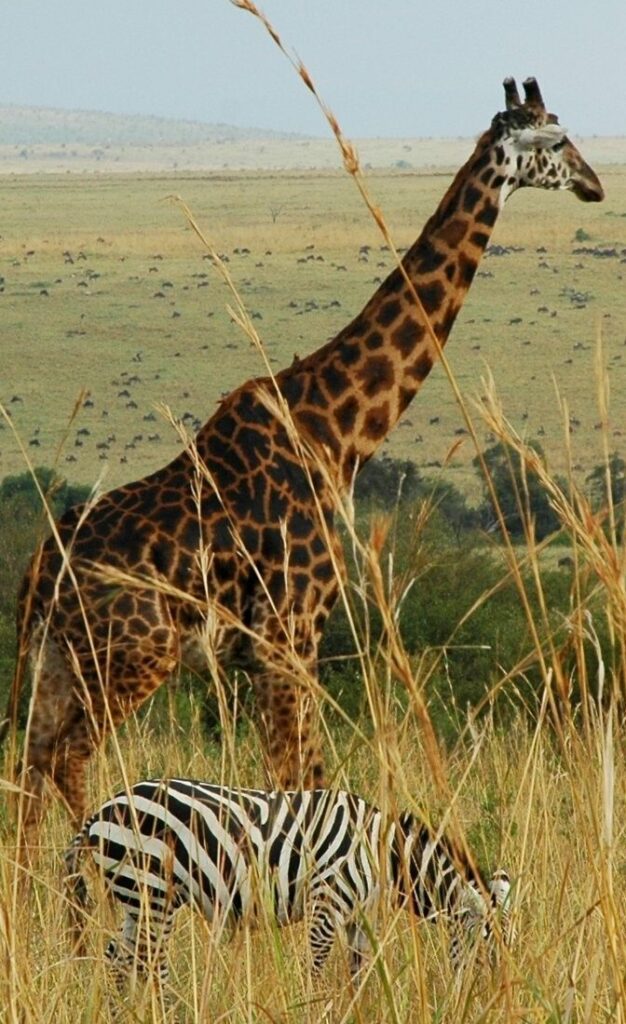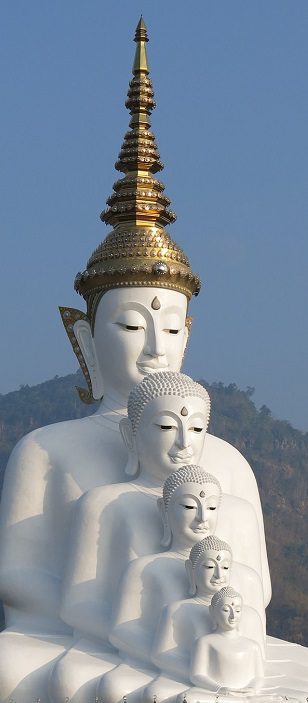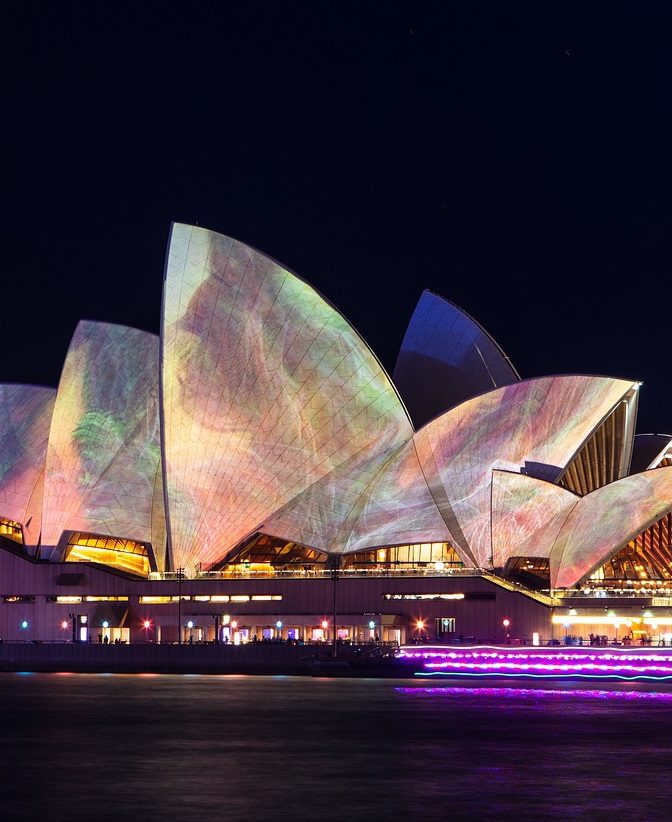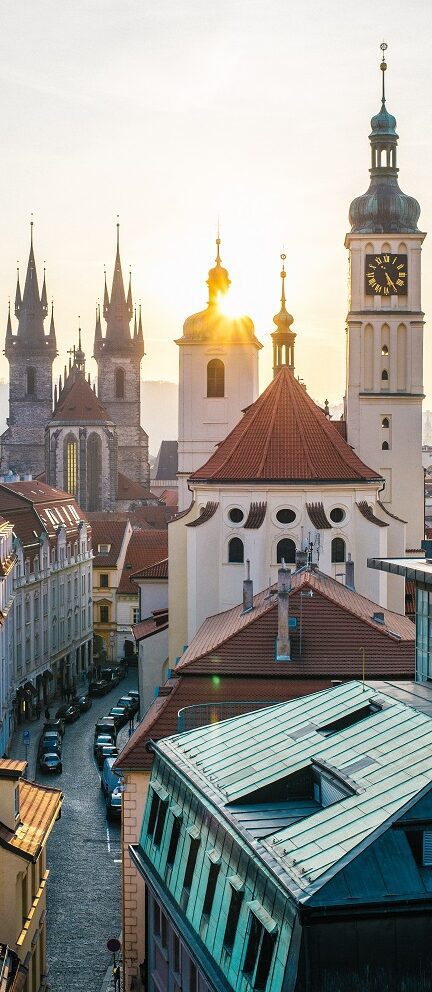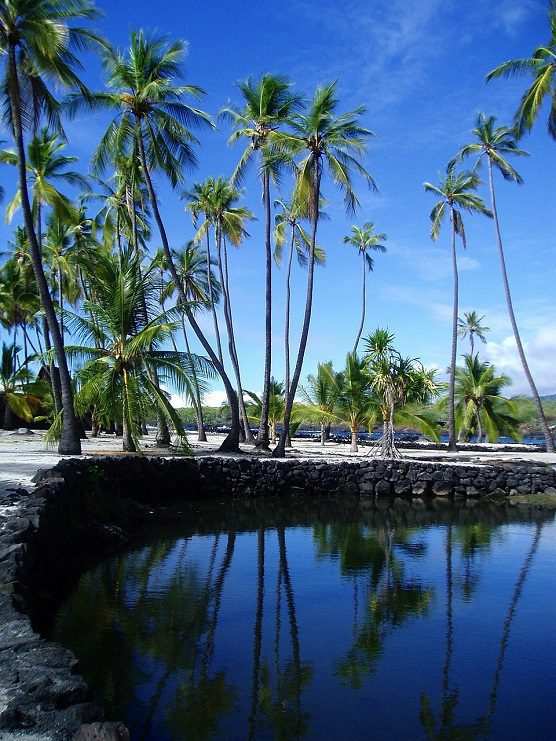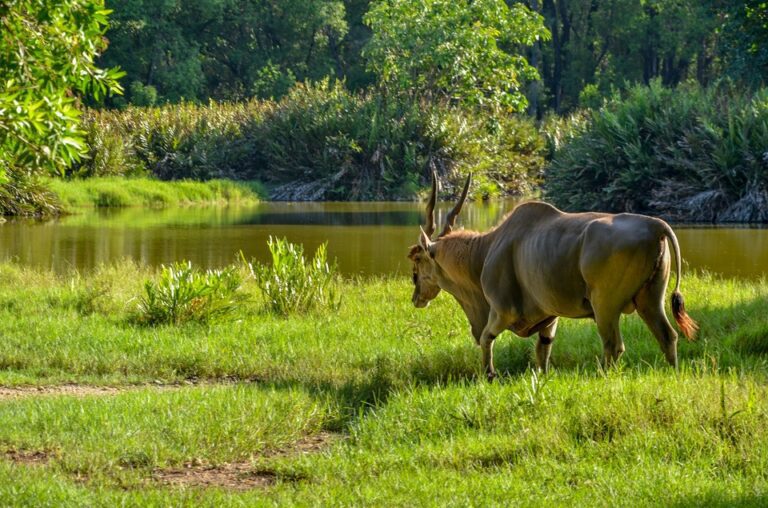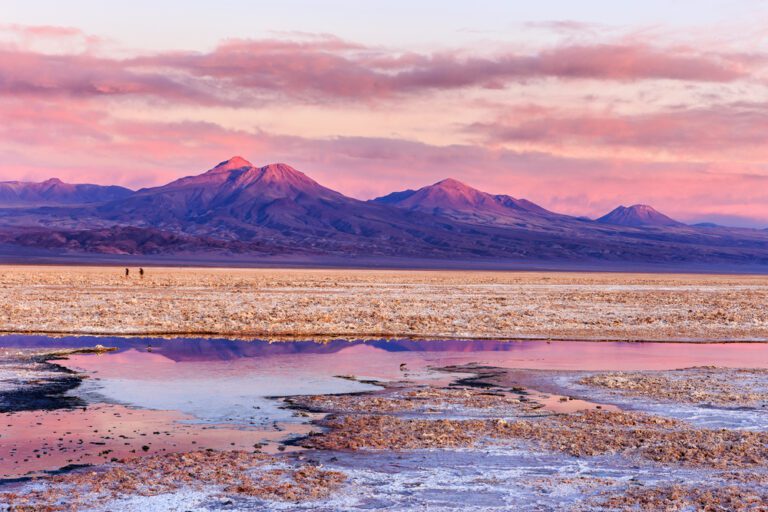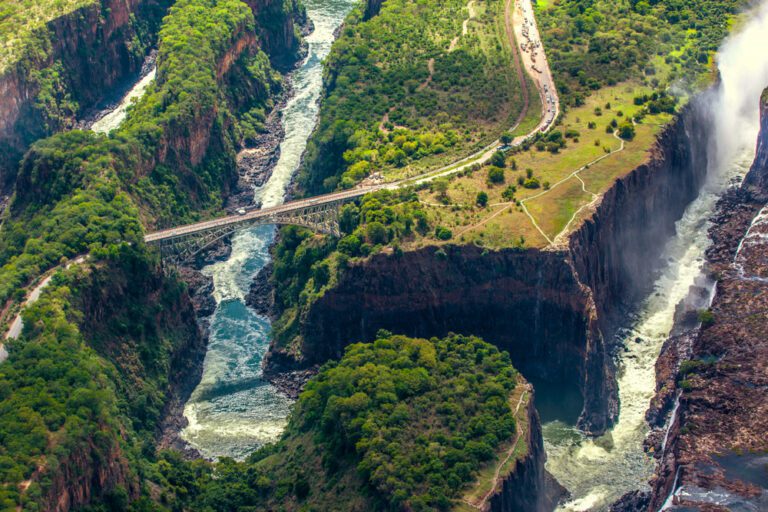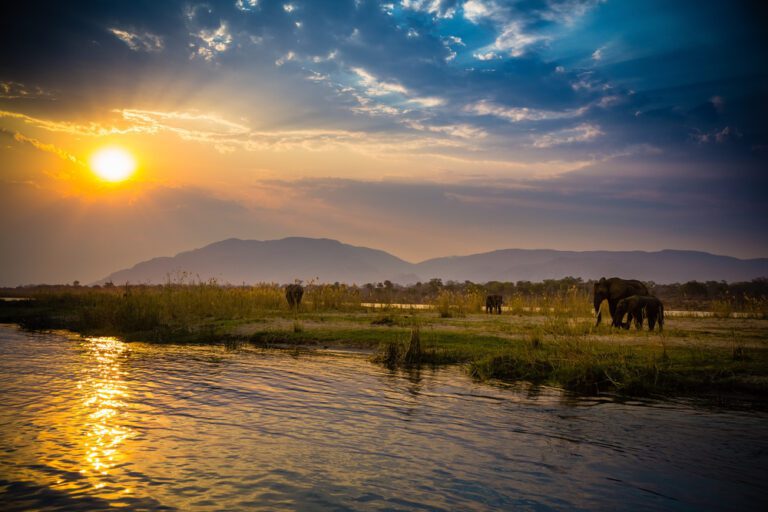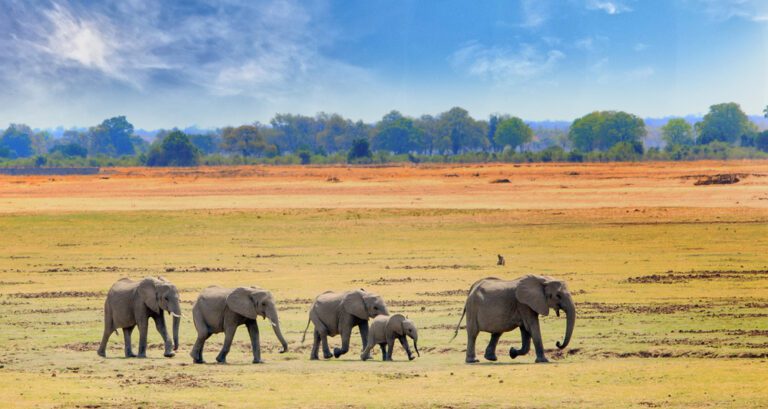Although Laikipia county in the Kenyan highlands is just a few miles north of the equator, the early-morning air is cool and tangy. When the sun reaches its zenith, shining brightly in arching, china-blue skies daubed with high, scudding clouds, there is a clarity to the light that makes it possible to see over great distances, and in incredible detail. The views from here, on the western reaches of the 32,000-acre
The owner of this extraordinary house, who prefers to remain nameless, says he first came to Laikipia because the landscape reminded him of his childhood home in central Nigeria, where his English mother, a chemistry teacher, and Nigerian father, a lawyer, raised him and his two sisters. His parents, who met and married in England, moved to Nigeria shortly after it gained independence from Britain in 1960. Later that decade, when the country was torn apart by the Biafra War, he and his mother and siblings were rescued by Swedish aid workers and flown to the volcanic island of Sao Tome, and from there to Portugal before finally reaching England. His father stood his ground, and when the war ended the family were reunited in the peaceful highlands around the city of Jos. It was there, as a young lad set free in the African bush, that the owner says he had ‘the most idyllic childhood, running around with a catapult chasing guinea fowl. At that age – about 14 or so – all I wanted to be was a game ranger.’
Instead, he would go to Yale and then Harvard Law School, where he met the Norwegian woman who would become his wife. He got a job at McKinsey & Company in New York as a management consultant and, as a reward for his progress, was sent to Johannesburg to head up the company’s strategy for the Standard Bank of South Africa after Mandela came to power. The posting re-ignited his love for Africa, and so he took leave of absence from McKinsey and went off in search of investment opportunities in Nigeria – which he found. Many years later, he is now the CEO of an ethical energy company dealing with solar, wind and gas projects in the country of his birth. But he’s never forgotten his childhood dream of becoming a game ranger.
Arijiju – the house takes its name from the Maasai word for the hill on which it was built – stands on the Borana Conservancy, owned by Michael Dyer, a third-generation Kenyan. Originally a cattle ranch, like much of the land around here, it shares a boundary with Lewa Wildlife Conservancy, which has been at the forefront of rhino conservation in Kenya for more than two decades. Borana operates both as a working cattle ranch, traversed by the nomadic Maasai with their cows and goats, and as a wildlife sanctuary. It’s a balancing act that’s anathema to safari purists who prefer even the illusion of pristine wilderness, devoid of any sign of human habitation, but with the commitment and involvement of local communities it has proved a successful conservation model. The property is well stocked with plains game – zebra, giraffe, Grant’s gazelle, eland and hartebeest- as well as lion and enormous herds of elephant. But the big news is it recently became home to 22 black rhinos, translocated from Lake Nakuru National Park and neighbouring Lewa – which had reached its own carrying capacity of 70.

With rhinos constantly under threat from armed poachers, Borana has had to invest heavily in security to protect them, including an anti-poaching unit. To help raise the money, Dyer decided to lease three parcels of land to like-minded investors on which to build private homes, on the understanding that the houses would be made available to paying guests, the profits from which are fed back into conservation projects on the land. The owner of this, the most beautiful house of all, had already been visiting Borana for 12 years when the opportunity to build his own home came up. He says he wanted his London-based children to know Africa, and to experience the joy and freedom he himself felt as a child, and, with central Nigeria now too dangerous to return to, the highlands of Kenya have given the family a key to the continent. For the owner, the complex world of conservation is gradually taking precedence over high finance. ‘I am finally starting to do what I always wanted to do,’ he says.
Sunlight hits the bedrooms at Arijiju first and arrives at the cantilevered swimming pool and its reed-covered terrace in the afternoon. It took the owner three years to settle on this precise spot. Before any building got underway, he tested for wind direction and watched how the light fell and cast shadows. He tells the story of how a group of chameleons under an old olive tree, sheltered from the prevailing wind and warmed by the afternoon sun, helped mark the position of one of the verandahs. As for the structure, the owner knew what he didn’t want -an old-fashioned, A-frame, thatch-and-brick safari house – but other than that, little came to mind. Working with two architects Nick Plewman from Johannesburg and Alex Michaelis from London – ideas were teased out, discussed, ruminated on.
If an A-frame roof was out of the question, then it should be flat, but that ended up looking too modern; the owner was keen to create something unobtrusive and embedded in the landscape, so the flat roof was topped with turf, creating something more nuanced. Gradually, other ideas and influences began to emerge. Michaelis had always been inspired by Le Thoronet Abbey, a Cistercian monastery built in Provence in the 12th century, distinctive for its lack of embellishment. References to the buried, rock-hewn churches of Lalibela in Ethiopia came out to play; the owner’s need for peace and privacy were noted. And so the concept of this highly reductive retreat, almost spiritual in its simplicity and beauty, took shape. For five years he says he spent every free waking hour thinking about, or working on, the house. During its construction, he was on site every six weeks.‘Yes, he was very hands-on,’ says Plewman.‘He has real vision and was the driving force behind everything.

It turned out to be an amazing collaboration, with a big team of creatives and craftsmen all working together.’ Both architects credit local contractor Ben Jackson with delivering something which has far exceeded their expectations: a 21st-century house built with 12th-century craftsmanship – all the quarried Meru stone was hand-chiselled by local masons – that feels ancient and wise, honest and elemental, but also very contemporary. It is truly remarkable how well Arijiju sits in its landscape. Literally cut into the bedrock, it is reached down a winding path created by the British garden designer Jinny Blom; the heavy, studded front door is triple height, arched and reticent; the entrance hall like a tunnel into an ancient fortress. Within, the intense, equatorial light cascades into a cloistered courtyard, illuminating the living rooms and bedrooms that lie easily around it; above it, to one side, is a roof terrace reached by a hidden stairway.
Outside, smooth-cobbled verandahs lead off all the rooms; the pool terrace fans out at the base of a flight of wide stairs, and beyond that, obscured from view, is the gym, a traditional hamman and spa. Two exquisite guest cottages set discreetly apart from the main house. The interior design is by Johannesburg-based Maira Koutsoudakis, who also created the smart-but-relaxed look at North Island in the Seychelles – considered by many the benchmark for all private-island hideaways – and Segera Retreat, also in Laikipia and owned by the conservationist Jochen Zeitz, former CEO of Puma. Where the internal walls have been left bare, all polished concrete or exposed rock, Koutsoudakis has introduced opulence in the form of large-scale chandeliers (even in the smallest rooms in the house and cottages), enormous French mirrors, limited-edition bronze tables from Cape Town, leather-and-raffia carpets from Morocco and outsize leather Campaign wardrobes and desks from India.
‘Nothing shouts, but everything carries enormous weight, or is richly textured, or has a smooth lustre that is restful on the eye,’ she says.‘Because the owner has roots on both continents, and is a very elegant man himself, it felt right to fuse the finesse of Europe with the rusticity of Africa.’ A keen runner and sportsman, the owner sent his regular masseuse (the best in London, he says) to train an already-brilliant therapist he found by chance in the nearby market town of Nanyuki. He made sure the gym equipment was up to his exacting standards, and the house has both tennis and squash courts. Beyond that, there are also traditional morning and evening game drives, guided walks, mountain biking on well-established trails, and horseback safaris across Borana and beyond.

The owner is keen for Arijiju to be used as a base for exploration rather than a static safari lodge (‘A bit like a Colorado dude ranch with wildlife,’ he says). Each year he and his family have discovered new adventures on Borana. One of their favourites is a day out at Ngare Ndare Forest, on the south-eastern boundary of Borana, where a tree-top-canopy walkway meanders through towering red cedars and deep swimming holes are the colour of Tanzanite, edged with emerald ferns fed by rumbling waterfalls. But perhaps the best way to absorb the immensity of Laikipia County and the diverse East African landscape is to take a helicopter expedition with one of the scions of a well-known Kenyan family,
Jamie Roberts (his brother Willie has Sirikoi camp on Lewa; one of his other brothers owns Richard’s Camp in the Maasai Mara). In a Roberts helicopter it is possible to explore the snow-covered Batian and Nelion peaks of Mount Kenya and go fly-fishing on the mountain’s almost inaccessible Lake Michaelson, or follow the Ewaso Nyiro River north over Samburu County, landing on Ol Lolokwe mountain – which rises suddenly from the volcanic plains that surround it – with its primordial cycad forests and astonishing views north to LakeTurkana and Ethiopia. These are phenomenally high-octane, adrenalin-pumping safaris and easily completed in a day if you wish. So it’s good to know that beautiful Arijiju stands waiting, candles lit, logs crackling in the baronial fireplaces, the bar open for pre-supper drinks on the roof terrace under the stars. There can surely be few sights more serene, or welcoming, in all of Africa.
